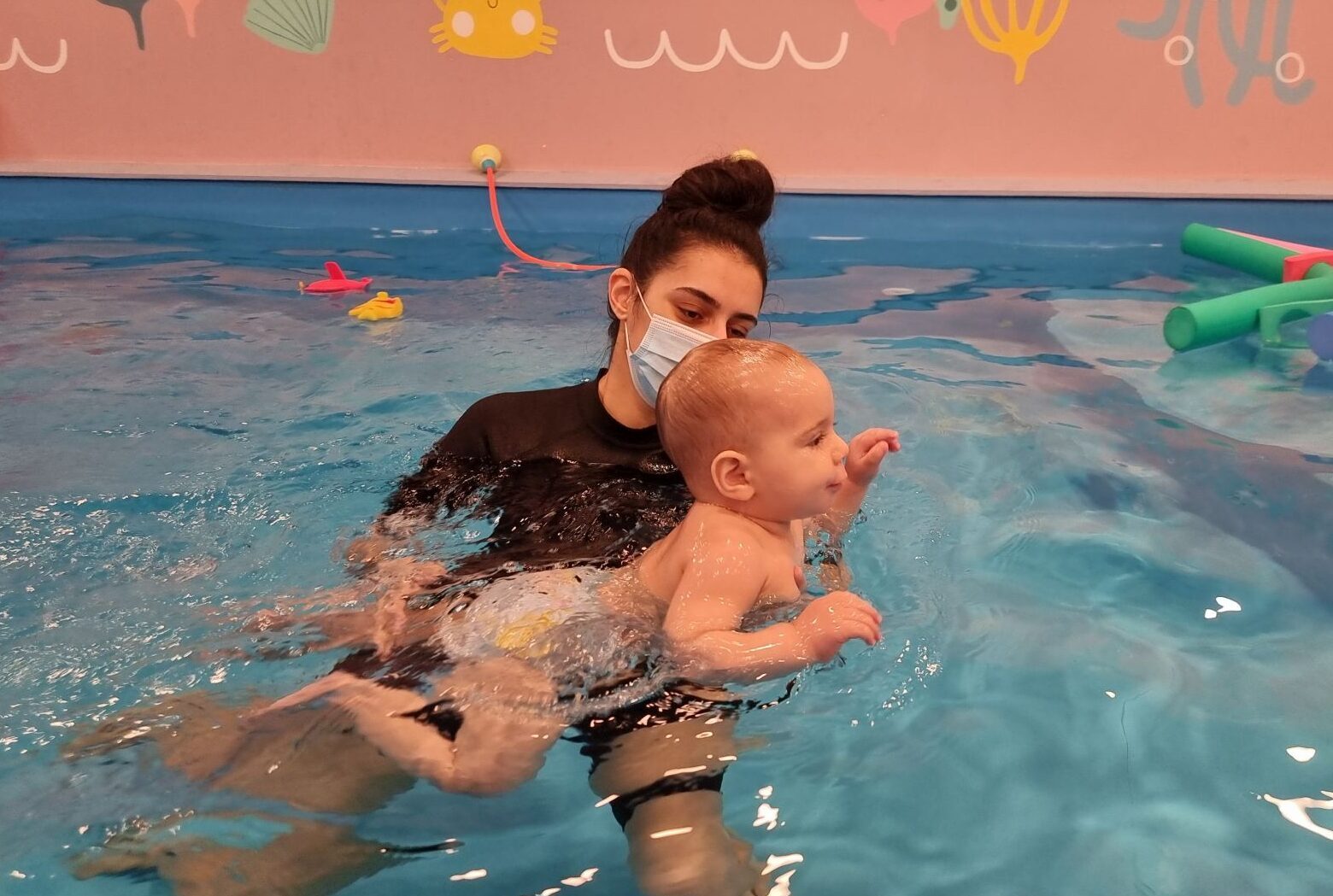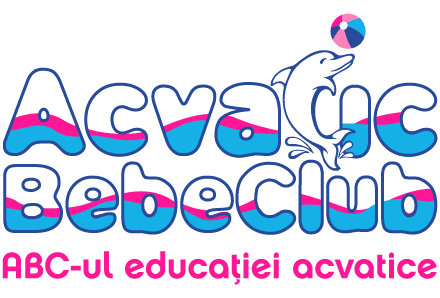
How fast a baby learns to swim – Informative guide for parents
Every baby is unique. Your baby is unique. So his journey in life will be unique, different, exceptional. The same idea is pursued in aquatic education, because each baby begins his experience with water differently, as space, as time and as a sensory stimulus. And from this point of view, no comparison will ever be made. Because the most important mission you have, as a parent, is to give him an important chance: to get used to, to feel and become one with the water, to receive all the benefits of this wonderful sport. a safe environment without comparing it to other babies.
Okay, okay, you say, but how do I know this sport is safe? How do I know my baby is really learning something? And especially with how much patience should I arm myself?
Swimming reflex
First you need to know exactly what your little one’s developmental stages are, in order to better understand how aquatic education helps him, even from just a few months old. If in the first month the baby is more concerned with sleep and food and has a predominantly reflexive behavior, you should know that he was already born with a reflex that he will lose at 4-6 months: the swimming reflex. It is an archaic instinct that helps him survive if he falls into the water. Of course, this will not happen, because you are a responsible parent, but it is this reflex that must be speculated.
So from 2 months we have to take advantage of it, the primary instinct of survival in the water. Because the baby has already become active, his motor cortex matures, unnecessary reflexes disappear, he responds to all stimuli and, most importantly, he has the motility to start aquatic education. This, plus the swimming reflex that he did not lose, makes him the perfect candidate to step into the aquatic world, now that he is not starting to develop fears, anxieties and anger attacks. Now the baby begins to develop especially fundamental confidence, the feeling of the capacity for action and the coherence of his own being and exercises learning abilities. Now is the time.
Of course, it is not mandatory for babies to start aquatic education at 2-3 months , we only tell you what the specialists recommend as a result of the way in which it develops cognitively. The recommendation also comes as an addition to the fact that our little ones have no idea what fear is until 8-9 months, even 1 year. Some are even braver and discover this emotion only when they are 2 years old. The lack of conservation instinct that we adults strongly appreciate is a strong point in aquatic education, precisely because water is not perceived as a threat by small swimmers, but rather as a friendly, comfortable, intimate environment associated with life. intrauterine. Attention, we are talking here about aquatic education, not about a child left on the edge of an unattended swimming pool. Only in the first case is the lack of fear an advantage. In the second case, aquatic education is the biggest advantage and you will see immediately why.
The ABC of aquatic education
This is where your baby’s adventure at the Aquatic Baby Club begins. And you need to know it in order to understand the answer to the question in the title of this article. We call it ABC because it’s just like a swimming alphabet, where:
- Coming from Accommodation and Acclimatization , a first step where the little one acclimatizes with the aquatic environment, discovers the joy of weightlessness in water and freedom of movement, permanently supported by the best instructors, in a safe and hygienic environment. Basically, this step is the one that any athlete does before training, the “warm-up” step and is always present at the beginning of an aquatic session and in babies.
- B comes from Benefits , not only because after only a few sessions they will be seen with the naked eye, true health benefits , both physical and mental, even for children with special needs: from obvious motor skills and flexibility, to permanently sustained developing muscles, to enhanced immunity and to the evolution of independence, autonomy and social skills, but also because our B comes from something else, from Gentleness . Each session will be conducted under the auspices of a method focused on his needs, without haste and in direct synergy with his speed of development, with exercises adapted to his age and personality.
- C comes from Communication and not any kind of communication, but a positive one, based on encouragement, support, trust and a lot of affection. The instructor is attentive to what your little one is telling him and adapts the exercises so that at the end of the session, fatigue and irritability do not set in, but good mood and joy.
And now let’s find out the answer to the question “How fast will my baby learn to swim?”
We suspect that you have already guessed the answer: your baby will learn to swim as fast as he wants . Not as fast as you want, not as fast as Daddy, Grandma, Aunt or his instructor wants. There are babies who at 1 year are already experts in diving, but do not want to jump. Or babies who jump into the water fearlessly dive, but have not yet gained the ability to swim on the surface of the water. What is important? For everything to be a game, not an obstacle course, not a competition, not a reason for praise, not a physical and mental effort that would exhaust him and make him perceive this activity as something that is not: a burden.
It is important to be patient, supportive and perceive aquatic education not only as a simple skill that your child acquires, but as a long-term workout for a healthy adult life. Because the benefits of this complex sport are extraordinary and an invaluable gift that you offer. Each movement in the water provides a complete exercise for the muscles, lungs, heart and, most importantly, the brain, simultaneously stimulating all 5 pillars of the senses: smell, sight, hearing, taste and touch. Water is relaxation, play, therapy, health, ritual, food and energy. And that’s what your baby needs and will feel with us. For him, aquatic education will become a routine that will balance him and form his basic qualities for adult life.
Celebrate every step of the way and don’t forget that hurry is not the solution, that there will be periods of assimilation and learning plateaus and that swimming is not learned overnight because it is more than a skill, it is exploration, curiosity, confidence. , joy, curiosity, independence, grace and endurance. It’s his future.
Bibliography:
- Baby Swimming – Author: Lilli Ahrendt – Meyer & Meyer Sport Publishing House, 2021
- Swimming For Babies – Author: Albert Gundani, 2014
- Learn to Swim: Helping Parents to Teach Their Baby to Swim – Newborn to 3 Years, Authors: Tracey Ayton and Ben Holden, Meyer & Meyer Sport Publishing, 2019
- Learn to Swim Step-by-step water confidence and safety skills for babies and young children – Authors: Rob and Kathy McKay, DK Publishing, 2005
- United States Swim School Association – www.usswimschools.org
- World Aquatic Babies Congress – www.waterbabies.org
